In this post I have explained the method of incorporating high watt LEDs with Arduino through external high voltage supplies. The question was put forth by Mr. Cole.
The Circuit Question
I stumbled upon your blog and I love it! So much great information and great ideas Right now I am trying to figure out exactly how to separately control several 1 watt leds from the arduino ,
I understand c language and have no problem with the arduino, I just don't really understand how to run higher voltage through the arduino since it puts out 5v I understand a little about mosfets and planned on using logic level mosfets to control these leds..
they will only be flashing a few times a minute for about 30 minutes a day..do you see any problem running them through mosfets? Will I need 9 mosfets to separately control 9 leds?
Do I need resistors as well or do the mosfets make up for that?
Any help would be much appreciated! Thanks again!
Cole
The Circuit Solution:
For controlling 9nos of 1 watt LEDs together through an Arduino, the following simple set up may be incorporated through a 12V external supply:
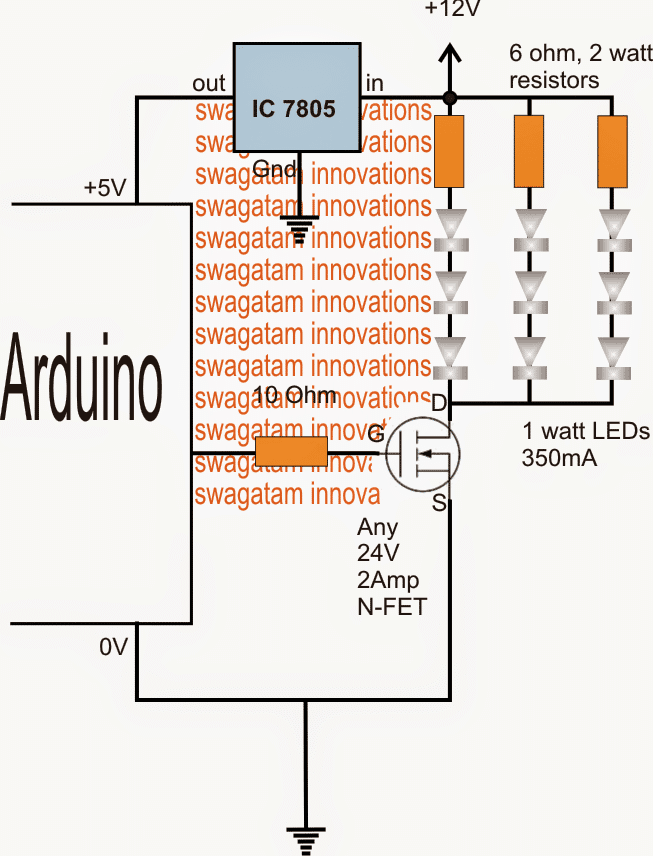
For controlling single LEDs or multiple LEDs from separate Arduino outputs, individual mosfets may be required as given below:
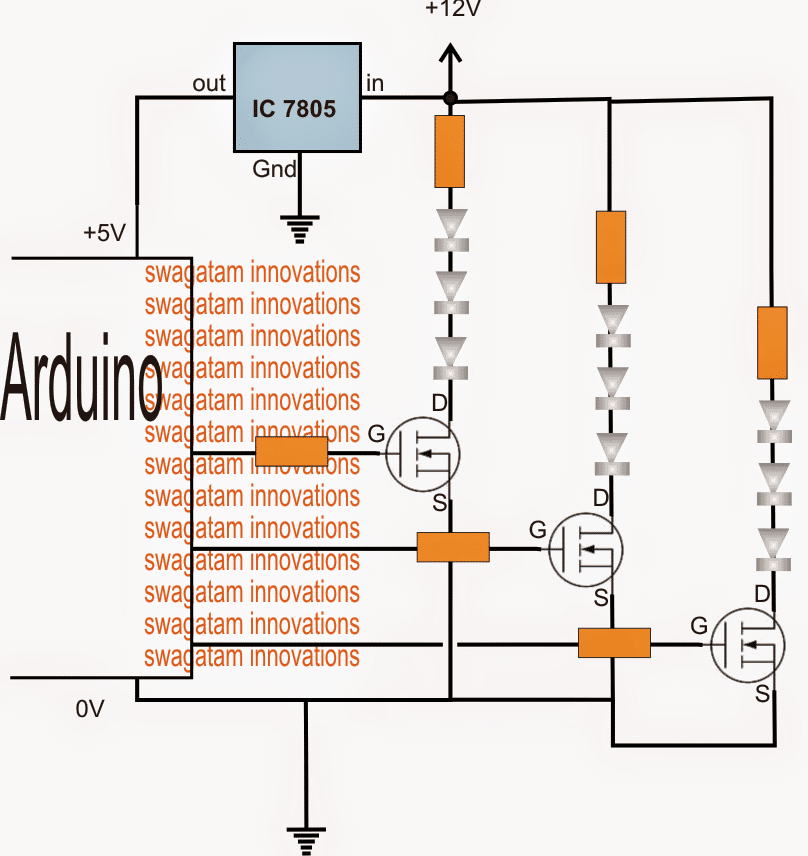
The LED resistors may be calculated using the following formula:
R = (U - LEDfwdV)/LED Current
where U is the supply voltage
LEDfwdV is the LED forward operating voltage of the particular series
LED current is the ampere rating specs of the LEDs used
Therefore here U = 12V
LEDfwdV = 3.3V x 3 = 9.9V since 3nos are there in each series and 3.3V being the forward voltage spec of each LED
LED current = 350mA, let's take it 300mA or 0.3Amp to keep things cooler.
Substituting these in the formula:
R = (U - LEDfwdV)/LED Current
= 12 - 9.9/0.3
= 7 ohm
watts may be calculated as
Watts = LEDfwdV x LED current = 9.9 x 0.3 = 2.97 watts or 3 watts
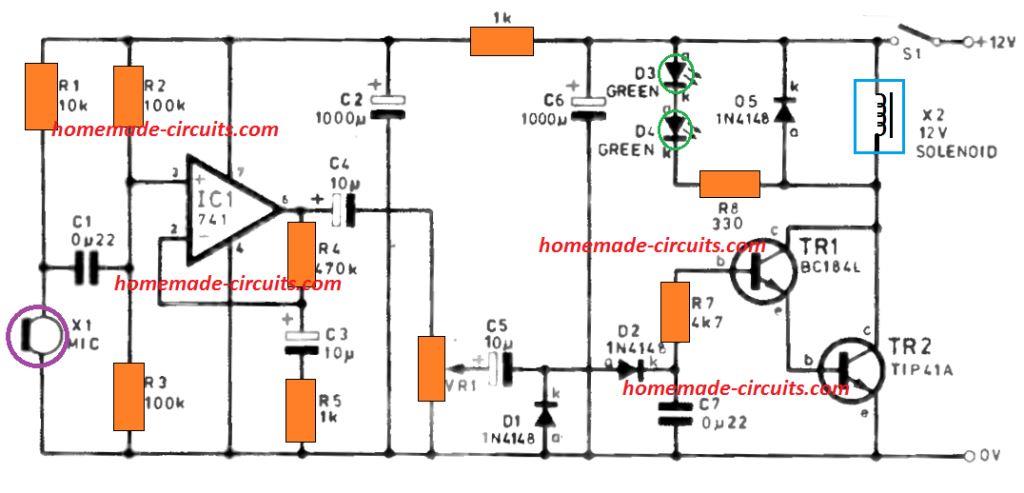
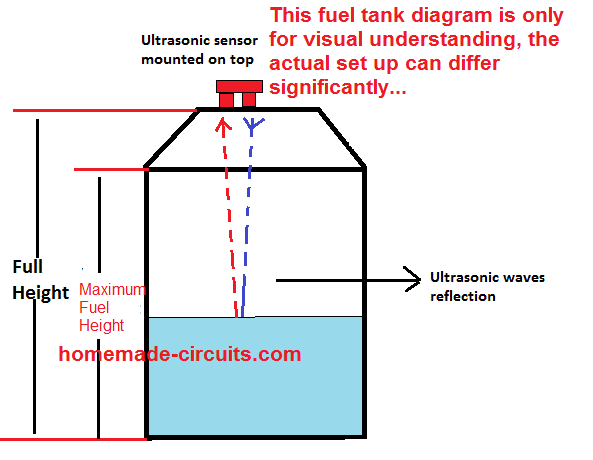
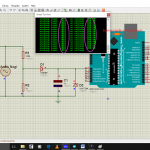
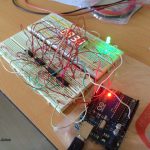
Comments
what mosfet you are using??? thanks